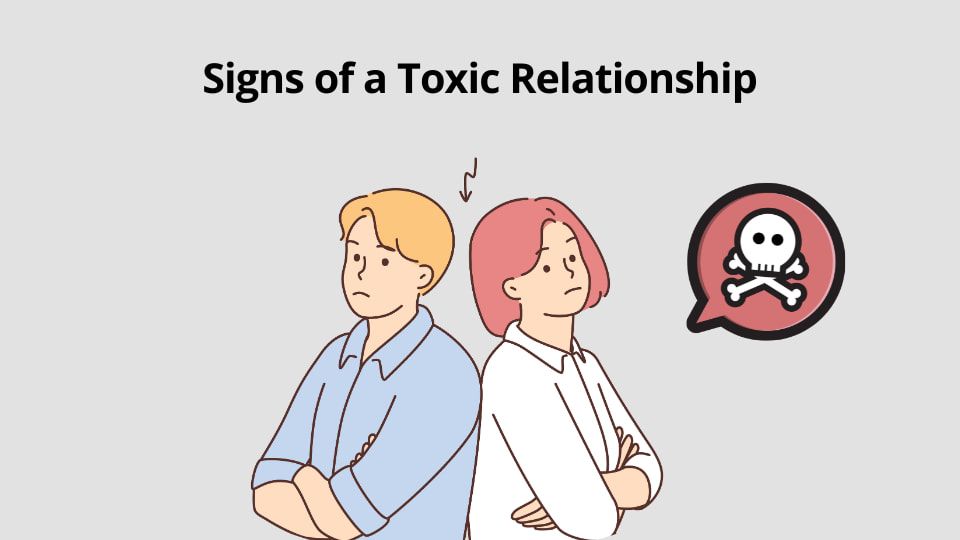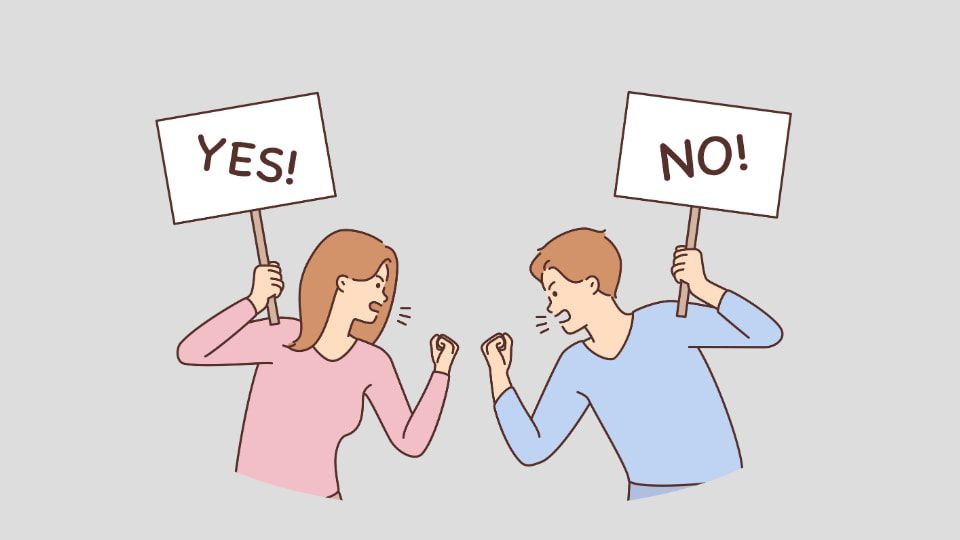If you suspect you’re in a toxic relationship, take back the power first
When someone’s behavior starts to feel “off,” you don’t have to rely on guesswork or emotional swings. VigilKids gives you real-time screenshots, message tracking, and WhatsApp monitoring so you can see where the toxicity is coming from — and take back control of your next move.
Signs of a toxic relationship can show up slowly, leaving you unsure whether to trust your feelings or make a change. If you have been asking how to tell if you are in a toxic relationship this article will give you clear, practical help. You will find the early signs and the common toxic relationship signs that often start small but grow worse, plus specific toxic boyfriend signs to watch for.

This article will show you how to recognize signs you're in a toxic relationship with short examples and simple scripts you can use when you set boundaries. You can scan a top 10 checklist, read an early warning section, and learn how digital behavior and social media can reveal control or abuse. Read on for a friendly, usable guide and a printable checklist you can use right away.
- Table Of Contents
- Top 10 Signs of a Toxic Relationship: Quick checklist
- Deep dive: What these signs of a toxic relationship actually look like
- Early signs of a toxic relationship to watch for
-
How phones and apps reveal or hide — the signs of toxic behavior
- What to do next after recognizing these signs of a toxic relationship?
- FAQs on signs of a toxic relationship
Top 10 Signs of a Toxic Relationship: Quick checklist
These quick toxic relationship signs help you scan for problems fast. Read each line of theses signs of a toxic relationship, then check the short red-flag example to see if it fits your situation.
- 1.Calls repeatedly. Obsessive contact that ignores your boundaries, where they call or message you constantly and demand an immediate reply.
- 2.Demands social limits. Possessiveness that makes you cut friends or explain your every move to avoid arguments or constant jealousy daily.
- 3.Blames you unfairly. Manipulation and guilting that twists your choices into reasons you must apologize or meet their emotional needs first.
- 4.Laughs at you. Belittling comments or sabotage that erodes your confidence, often disguised as jokes or "helpful" critiques in public too.
- 5.Forbids your family visits. Isolation where they discourage family contact, control your schedule, or make you feel guilty for outside time activities.
- 6.Checks your phone constantly. Controlling behaviour including digital tracking, password demands, or reading your messages to monitor and limit your freedom daily.
- 7.Says you imagined it. Responsibility deflection where they refuse to own harm, blame you, or gaslight you about events and feelings regularly.
- 8.Hides bank statements. Lying or betrayal such as secret financial deals, cheating, or repeated broken promises that erode trust over time.
- 9.Threatens to leave. Emotional blackmail where threats, ultimatums or withdrawal of affection are used to control your choices immediately.
- 10.Insists you are wrong. Gaslighting that denies your reality, rewrites events and makes you doubt your memory and perception over time.
These short items are focused signs of a toxic relationship and can help you decide whether you are showing signs of being in a toxic relationship.
Deep dive: What these signs of a toxic relationship actually look like
Below are 5 of the most common and harmful toxic relationship signs. For each one we've prepared a short real life example and a quick script or safe action you can use.
1. Control and isolation
One of the most common signs of a toxic relationship is control. Control often starts small and grows. It can be telling you who you can see, monitoring your messages, or insisting on passwords and location sharing. Modern control includes digital tracking and checking your phone without permission, which Somerset lists as controlling behaviour.
Example: they demand your location every hour.
What to say: "I will not share my location all the time. I need privacy to feel safe."
Safe action: quietly copy important contacts and set a friend as an emergency contact.
2. Verbal abuse, belittling and gaslighting
Verbal abuse can be insults, put downs, or jokes that humiliate you. Gaslighting denies your experience and makes you doubt your memory. Village Counseling and personal accounts highlight how public put downs erode confidence.

Example: they call your ideas stupid in front of friends then say you are too sensitive.
What to say: "That comment hurt me. Please stop speaking to me that way."
Safe action: keep a dated log of incidents to track patterns.
3. Manipulation, guilting and emotional blackmail
This looks like making you responsible for their mood or threatening to punish you with anger or withdrawal. They say if you do not comply then they will hurt themselves or end the relationship. Somerset notes this as emotional manipulation, which is also one of the signs of a toxic relationship.
Example: "If you leave I will tell everyone you ruined my life."
What to say: "I will not be controlled by threats. I will contact a friend now."
Safe action: tell a trusted person what is happening and arrange a safe check in code.
4. Repeated patterns and refusal to change
You can talk about problems many times and see no real change. Matthew Hussey calls out how some people keep inflicting damage rather than solving problems. The pattern is the red flag, not occasional mistakes.
Example: you raise an issue, they promise change, then repeat the same hurtful act.
What to say: "We have tried to solve this before and nothing changed. I need actions not words."
Safe action: set a clear boundary and follow through if it is crossed.
5. Financial control and sabotage
Controlling money, hiding accounts, or sabotaging your job are serious signs you are in a toxic relationship. This kind of control makes leaving much harder.
Example: they withhold money and question every purchase.
What to say: "I need access to my own bank account and paperwork."
Safe action: make copies of ID and important documents and store them with someone you trust.
Early signs of a toxic relationship to watch for
Watch for small patterns that feel off. These early signs often seem minor at first but can become harmful over time. Common early signs include:
- subtle possessiveness, such as joking about who you can see or making comments about your friends
- put down jokes that leave you feeling small after the conversation
- excessive texting or calls very early in the relationship, insisting on constant attention
- quick escalation of intensity, like moving in too fast or pressuring for serious commitment right away
- small boundaries being ignored, then framed as your problem when you push back
Ask yourself this question to test the pattern: do you change what you do, say, or wear to avoid conflict or to please them? If yes, that may be one of the early signs of a toxic relationship. Think about whether these behaviors could cause long term damage if they continue, as Matthew Hussey notes, and trust that feeling.
If your partner is a boyfriend: toxic boyfriend signs
When the partner is a boyfriend, certain signs of toxic relationship appear more often. Look for these specific red flags that point to signs of being in a toxic relationship:
- extreme jealousy over small interactions with others
- checking your phone or social accounts without permission
- expecting you to quit friends or give up hobbies to spend more time together
- controlling shared or personal money, questioning every purchase
- belittling you in front of friends or family to gain power
- threats, whether about leaving you or harming themselves to control you
If you see two or more of these toxic boyfriend signs regularly, take them seriously and consider the self test and safety steps in this guide.
How phones and apps reveal — or hide — the signs of toxic behavior
Digital control is a common way toxic behaviour shows up. If you wonder what are signs of a toxic relationship online, watch for patterns below. These are quick signals that someone is using tech to control, shame, or frighten you.
Signs to look for:
- Demanding passwords or constant access to your accounts.
- Secretly reading your messages, social posts, or email.
- Forcing you to share location or using apps to track where you go.
- Deleting your photos or messages, or threatening to leak them.
- Screen recording calls or chats to use later against you.
How to tell if you are in a toxic relationship online:
- Ask whether the tech behaviour makes you feel watched, unsafe, or guilty.
- If the person uses your phone or accounts to punish you, that is digital abuse, which is also one of the signs of a toxic relationship. Somerset Domestic Abuse lists hacking and tracking as controlling behaviour and warns that these actions are serious signs of abuse.
If a child or teen may be affected:
- Parents can collect evidence safely and legally when they suspect a minor is being groomed or controlled. Use steps that respect the law and a young person's rights.
- Consider tools designed for parents. For example VigilKids offers features like WhatsApp monitoring, keyword and risk alerts, location tracking, and screen recording to flag risky patterns. Use such tools only to protect minors, and only after checking local laws and getting professional advice.
Template for parents:
- If you notice sudden secrecy, withdrawal, or a new older partner, document dates and messages, speak to the school, and consult police or a child welfare professional before confronting anyone. Consider a parental monitoring tool after legal advice and with safety as the priority.
What to do next after recognizing these signs of a toxic relationship?
If you recognize signs you're in a toxic relationship, take steps that protect your safety first. Use the checklist below to make a simple plan and get help.
Immediate safety actions:
- If you are in immediate danger call your local emergency number now. For example in the UK call 999 and in the US call 911. Replace these with your country's emergency number.
- Find a safe place to go if you need to leave right away. Ask a trusted friend or family member for temporary shelter.
- Use a safe device that the other person cannot access when you search for help or send messages.
Collect and preserve evidence:
- Keep dated screenshots or export messages and emails that show threats or harassment.
- Save bank statements and records of financial control or unusual transfers.
- Make short, dated notes about incidents with time and location.
- Store copies with a trusted friend or in a secure cloud account that only you can access.
Practical safety planning steps:
- Prepare an emergency bag with ID, documents, money, keys and medication kept with someone you trust.
- Create a code word so a friend knows you need immediate help without alerting the other person.
- Set clear boundaries in writing and let one trusted person know your plans and check in times.
Who to contact and when:
- Contact a local domestic violence organization for advice on safety planning and shelters. They can help you assess risk and next steps.
- Seek legal help for protection orders, custody or financial access.
- Talk with a counselor or therapist for emotional support and recovery.
- If you suspect monitoring or retaliation consult professionals before trying to change devices or passwords.

For parents and guardians:
- If a minor may be at risk document patterns and get professional advice. Consider parental safety tools to monitor risks to a child only after checking local laws and with legal or professional guidance. Do not use monitoring tools to secretly spy on adult partners.
If you fear being listened to or tracked, prioritize contacting a professional service or the police before taking visible steps. A safe plan and trusted support make leaving and recovery more possible.
FAQs on signs of a toxic relationship
Q1: What are the signs of a toxic relationship?
A: Core signs include controlling or monitoring behaviour, frequent belittling or gaslighting, isolation from friends or family, and financial or practical sabotage. These four show up again and again in toxic patterns.
Q2: Am I too sensitive or is it toxic?
A: Look at the pattern and the response to your concerns. If the behaviour is repeated, causes real harm, and the other person refuses to change, that points to toxicity. This helps you tell if you are in a toxic relationship.
Q3: What should I do if my boyfriend shows toxic behaviour?
A: Start a safety plan, document incidents, tell a trusted friend, and seek professional help. Contact local support services or police if you are at risk. Toxic boyfriend signs should be taken seriously and acted on.
Q4: Can tech show signs of a toxic relationship?
A: Yes. Secret tracking, forced passwords, deleted messages, and threatening to share images are digital red flags. For parents, tools like VigilKids can help monitor risks to minors but use them only with legal advice and care.
Conclusion: Stay safe, and trust your instincts
You have steps you can take right now. Start by recognizing patterns of the signs of a toxic relationship, collecting dated evidence, and using the self test to see how to tell if you are in a toxic relationship. Put safety and legal advice first. Share your plan with a trusted friend and contact local support services or emergency numbers if you feel at risk.
If you worry about a child or teen, consider parent-focused tools like VigilKids to spot risky online patterns and location concerns. Use any monitoring only with legal advice and the child's best interest in mind. For adults seek local domestic violence organizations and professional help. Know the signs of a toxic relationship, stay safe, and trust your instincts.
